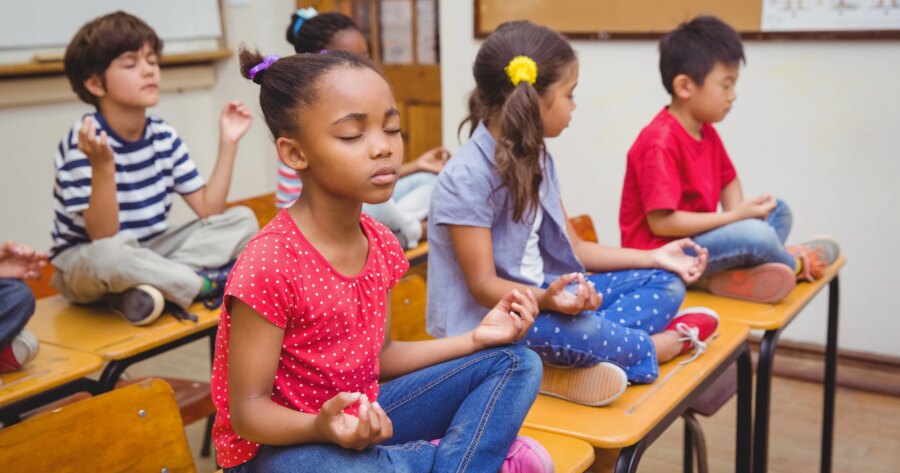We all want the best for our kids. There is a constant worry of not imparting the right knowledge at the right time, or not preparing them for the real world. Thankfully, we can rely on our children’s caregivers and educators to fill in some of the gaps where we don’t feel as confident. However, with growing class sizes, teachers may have less time to address every issue that may crop up over the course of your child’s year at school. There is a lot of curriculum to cover, and many teachers already take on extra curricular work as it is. With that being said, here are the top 12 things that really should be taught in schools but aren’t (yet) a regular part of the curriculum.
12 Social Media Awareness
It’s out there, and it is unavoidable. YouTube channels, Instagram, and Snapchat are all becoming everyday vocabulary in our children’s lives. As parents we can limit our kids screen time, but a lot of us don’t have the knowledge to teach our growing children the ins and outs of social media apps and websites. A lot of our children’s interest in these apps come from hearing about it at school. It would be great to see school’s start teaching a few classes about social media safety and etiquette. A lot of children don’t have the world view yet to conceptualize that something they put out into the internet has the capability to stay there forever. If schools gave some information on the perils of screenshots, commenting, trolling, even dating on social media, our kids would be much better off for it. If introduced to children properly, social media can be wonderful, and is a way for our children to experience the world from the safety of their own home.
11. Emotional Intelligence
So many school aged children have issues with expressing how they are feeling, or knowing what to do with those feelings. Sometimes as parents it is hard to guide our children in these big emotions. If schools started modelling healthy expressions of anger, this could have far reaching results in violence and aggression in schools. One major component of this is meditation. Some schools in North America and in Europe have already implemented programs to help with this with some amazing results. Robert W. Coleman Elementary in Baltimore started a brilliant program that had students who were sent to detention do meditation, yoga, and deep breathing. While this won’t fix all anger issues, it was reported that the student’s were much more calm and relaxed throughout the day once this program was put in place.
10. Budgeting
This seems so easy, yet we as parents struggle with it ourselves. Saving for bills, taxes, and surprise expenditures are something that is not always common sense. Having schools do some lessons here and there about budgeting allowances, or ways to save money would have positive outcomes for a lot of students who might not have taken any interest in financial planning.
9. Job Opportunities
A large chunk of school time is spent worrying about what university or college your kids will get into. Are their grades good enough? Do they even know what they want to do with their lives? There are so many options out there for our kids that no one tells them about. It would be great if schools could have assemblies for some of the older grades that show the weird and wonderful sides of the job market. Love animals? You don’t have to go to University and become a vet or a marine biologist. Dog walking, mobile pet services, are all part of our new world work force that would be great for kids who don’t have the ability or desire to go to secondary education. If our kids are shown real life examples of different career choices it will give them a better chance at deciding where their passions could lead them in life.
8. Mental Health
While this is usually handled at home, schools are full of students with mental health issues. If schools could start to train their educators in ways that could help them offer real life solutions to our children, the results could be amazing. For example, simple ways to handle a panic attack could be invaluable for our kids to learn. This could also take away the fear of the unknown to other students, who might not suffer from panic attacks, but have friends who do.
7. Manners and Etiquette
This seems so simple, and yet we’ve all cringed when our child has out of the blue overshared personal information, or been rude in public. This is something that usually gets taught at home, yet having schools instil some of this knowledge sometimes helps it sink in more. Simple things like phone etiquette, and how to respond properly to emails are social artforms that sometimes get lost in the day to day realities of texting emojis as communication. This can only help our children as they grow into adults that will need to have face to face skills for interviewing for jobs.
6. Cooking and Nutrition
Nutrition is covered in health class, yet the actual preparation of these healthy foods are not usually discussed. Kids are interested in food, and love to help out in the kitchen. Whenever something is introduced outside of the home, children will usually be more willing to try it. With a rise in allergies, and health and safety codes teachers need to be more careful these days, yet there still are great opportunities to have students try new fruits or vegetables, or to share dishes that they might eat at home. Having children take on an active interest in preparing and having a say in what new foods they will try can make for healthier teenagers.
5. LGBTQ Awareness
This is something that we have seen schools really make an effort in over the past decade. There is so much more awareness now as a collective. No matter what your beliefs, it’s a good idea to make sure that your child is a kind and accepting human being. One way that schools could be more proactive is helping students navigate supporting their friends and classmates. What can your child do if a student in their class comes out as transgender? How can they be as supportive as possible, while still having the curiosity and questioning that all kids have? If schools could facilitate help with these kinds of scenarios, it could help cut back on bullying and the stress of children who struggle with telling their classmates the experiences they have as a LGBTQ youth.
4. Basic Household Tasks
There are some household chores that are becoming lost to the ease of paying for someone to do it for us. Whether or not your child has any interest in doing these things, if schools could start to teach really simple things like sewing buttons back onto shirts, this would be a boon to our children’s development and growth. Some parents themselves don’t know how to do these things, and having schools take the lead in this would be great for some kids that might not have access to someone who could show them the ropes of these simple tasks.
3. Cultural Awareness
Let’s face it. Even in today’s melting pot there are some areas that have mostly all of one culture at their schools. This can be addressed through school councils, principals, and teachers being open to exploring cultures that are different to those at their school. When children are shown things that might seem different from what they are used to in their day to day life it opens up their eyes to seeing the world on a bigger scale. Trying new foods and dances, singing new songs, reading books on different experiences, and having pen pals in different parts of the world are all great initiatives that some schools have already adopted. If we could get all schools do take on these practices it can expand the minds of our children even more.
2. Divorce
It happens. A lot. And kids have questions. So many questions. Sometimes in schools there is not a lot of discussion about how it affects the students, and their learning. Sometimes a parent is no longer in the picture. If schools started implementing ideas for helping students navigate the tricky waters of Father’s Day and Mother’s Day when one parent is no longer in the picture it could take a lot of stress out of their lives.
1. Self Care
This is huge. Self care, or self love, is something that we were all taught on a basic level, “you should love yourself because you are unique, don’t let anyone make you feel unworthy!” but students are not usually given specific, real life examples of how to practice self care. If schools could introduce small ideas like expanding your interests, positive self talk, emotional honesty, using your intuition, becoming aware of self neglect, and normalizing therapy our children would have more access to tools that could help shape them into an adult that has the capability to really love themselves and feel comfortable in who they are.















